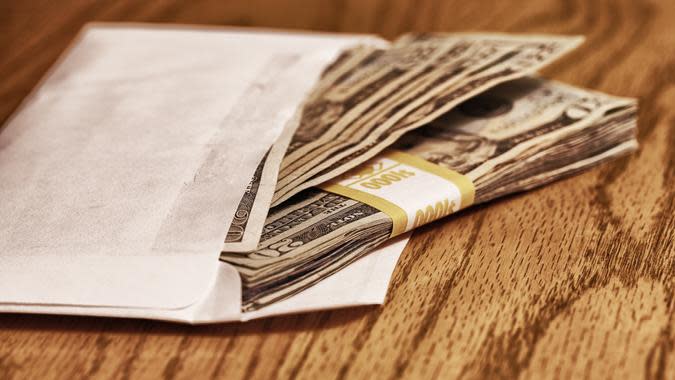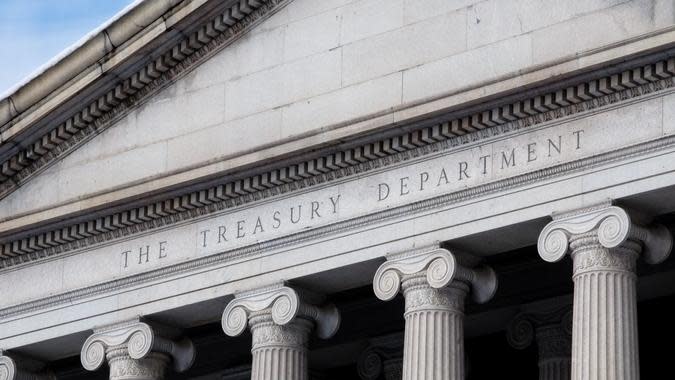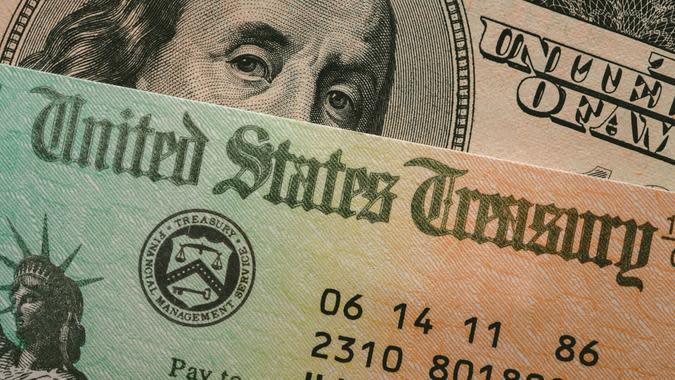20 Investments That Are Recession-Proof


Commodities
Commodities are raw materials, such as metals and grains, that can be used singly or as components of other products. Long considered a potential hedge against inflation, commodities give investors a few ways to invest. The easiest, and perhaps one of the less risky, is through a mutual fund that invests in businesses that are involved in commodities - mining, energy or agricultural companies, for example.
I'm a Self-Made Millionaire: These Are the 6 Investments Everyone Should Make During an Economic Downturn
More: These Are the 10 Most Overpriced Housing Markets in the US -- 5 Are in Florida

Pharmaceutical Stocks
Pharmaceutical stocks, a subset of the healthcare industry, are traditionally considered "defensive," along with other industries like utilities. This is because even in the midst of an economic crisis, people need medication and to be treated for illnesses. As an example, if you are on a blood pressure medication, you're not likely to stop taking that when a recession comes. More likely, you're going to stay on your medication even if it means that you have to find a new way to pay for it. This and countless other examples demonstrate why healthcare stocks can still be a good play even in an economic downdraft.
Take Our Poll: Who Has Given You the Best Money Advice You Have Ever Received?

High-Yield Savings Account
A high-yield savings account might not be the best long-term investment for your money, but it can be a great place to ride out uncertain economic times. Even in an era of near-zero interest rates, many high-yield accounts still offer more than you'd get in a normal checking or savings account. And this way your money will be safe during a recession when you might need emergency funds to get you through tough times.

Technology Stocks
Technology stocks are not always considered a classic defensive play during a recession. But with so many people around the world working at home more than before, technology has proven to be a vital and thriving link thus far. Between binge-watching Netflix, ordering items from Amazon or connecting with friends, relatives and workers via Zoom, many tech stocks are holding up and will be good long plays.

Grocery Stores
Grocery stores run on thin margins, which can make them tricky investments. During recessions, however, grocery stores often have an uptick in sales and profitability. As consumers trim their spending on eating out at restaurants, they tend to buy more groceries and eat at home. Even during the bleakest of recessions, people still need to eat, and grocery stores provide this necessary service in a more affordable package than restaurants.

Utility Stocks
Utility stocks fall into the same defensive, necessary category as grocery stores. Even when consumers trim back their spending, they still need water coming in through their pipes and power coming in through their lines. There will always be a demand for the product utilities provide, even during a recession. Utility stocks also tend to pay high and consistent dividends, which makes them more appealing to investors looking to get defensive.
How To Buy ChatGPT Stock: Your 2023 Guide to AI Investing

Precious Metals
Precious metals like gold and silver are often in demand during stock market sell-offs and times of overall economic unease. The reason is that precious metals are seen as a "store of value," something tangible that investors can physically hold onto while their intangible assets, like stocks, go down in value. Gold also tends to rise during low-interest-rate environments; since gold doesn't pay a dividend, it becomes more attractive when other instruments are not paying much income either.

Rental Properties
Housing as an investment isn't particularly recession-proof. In fact, during major economic traumas, housing prices tend to go down, although that hasn't been the case in the present downturn due to the effects of the pandemic on the housing market. But rental properties can still be defensive in economic recessions because of the passive income they provide. With record-high prices keeping many would-be homebuyers out of the market. prospects for owners of rental properties could be especially good.
The same caveats in choosing a rental property, such as being sure to choose an in-demand property in a well-located area, and understanding the work and risks involved in owning a rental property, apply whether or not you are buying in a recession.

Companies With Solid Balance Sheets
During a recession, particularly a long and uncertain one, it pays to find companies with the strongest balance sheets. As sales dry up and expenses continue, companies without large cash reserves or other assets to help them weather the storm are the most likely to suffer, with some folding up shop entirely and never coming back. Companies like Coca-Cola and Alphabet, commonly known by its subsidiary's name Google, have fortress-like balance sheets and will no doubt survive this recession.

Certificates of Deposit
Certificates of deposit are in a similar category to savings accounts when it comes to safety. Both are insured by the Federal Deposit Insurance Corp. up to $250,000 per depositor. CDs typically pay higher rates than standard savings accounts and may pay as much or more than high-yield savings accounts, however, a CD often locks in funds for a set amount of time so you won't have easy access to that money. If you don't think you'll need that money anytime soon, a CD can be a good place to ride out a recession and keep your funds safe until you can reinvest your money into investments with higher return potentials.

Money Market Accounts
Money market accounts are another example of a federally insured deposit account where you can trust that your money is safe. Money market accounts are typically semiliquid hybrids of checking and savings accounts, with limited checkbook access and modest annual percentage yields. Some online banks, in particular, have begun offering high-yielding money market accounts, and this can be a good place to hide out while you wait for the current economic and market uncertainty to pass by.
Housing Market: Should Older Americans Rent in Retirement Instead of Paying a Mortgage?

High-Dividend Stocks
High-dividend stocks are riskier than FDIC-insured products like savings accounts and CDs; however, their potential for return is higher. During the market sell-offs that usually accompany recessions, high-dividend stocks may hold up better than others because investors are getting a cash return in addition to the potential stock price return. High-dividend stocks also tend to be more mature companies with significant cash flow in defensive industries, which adds another layer of protection against wild market swings. You can still lose money on high-dividend stocks in a bear market, but you'll be protected somewhat by the incoming cash payments and the high survivability of companies like this during recessions.

Cash
Cash is a controversial "investment" because it effectively loses value when you hold it. Although the face value will stay the same in terms of the amount of money you hold, inflation will eat away at the buying power of your cash over time. However, if you need to protect your money at all costs from declining in value in other investments, you can keep some cash in your safe or safe deposit box so that you can be sure it will be there for you to use when the recession is over.

Educational Courses
Sometimes the best investment in a recession is an investment in yourself. Rather than having to worry about where stocks, bonds or gold are trading, you can use this time to learn a new skill or join a new career-oriented organization. By broadening your skill set, you may be more attractive to companies in need of top-tier talent to help pull themselves out of the recession.

US Treasuries
U.S. Treasuries are the gold standard when it comes to safe investments. These securities are backed by the "full faith and credit of the U.S. government," meaning the U.S. Treasury has your back when it comes to getting paid your interest and principal. While your risk of default is essentially nonexistent, you will have to deal with interest-rate risk if you sell your Treasuries before they mature. The longer the maturity, the more your price will go down when interest rates rise. To minimize this risk, hold your Treasuries to maturity, only invest in short-term options or build a ladder with a maturity coming due every year.

Senior Living Stocks
Senior living stocks are defensive healthcare stocks that can often resist economic downturns. These types of companies care for the elder population in a number of ways, including long-term care, independent and assisted living and other specialized programs. As the population continues to age, demand for these services remains high. If you or someone in your family is currently using senior care services, you will likely continue even during a recession. If you need to cut costs, discretionary items like vacations and new cars are much more likely to fall under the chopping block than long-term care; this helps provide senior care companies with some level of defense during economic downturns.
I'm a Self-Made Millionaire: These Are Investments Everyone Should Avoid During an Economic Downturn

Waste Disposal Companies
Waste disposal companies are typically considered defensive because no matter the state of the economy at large, humans both generate trash and don't want it around. Weekly trash pickups typically continue across the nation no matter what the economic backdrop, and this makes waste disposal a good bet during a recession.

Diversification
One of the best investments you can make during a recession doesn't trade on any exchange and can't be purchased directly from any company: diversification. Diversification is the process of allocating different sections of your portfolio to noncorrelated investments. With proper diversification, your entire portfolio won't be going down or up in massively volatile swings. Rather, a portion of your investments should be going up when another goes down, to smooth out your ride. As excessive portfolio volatility often leads to bad investment decisions, such as selling everything at the bottom, proper diversification can help ensure you remain invested until the inevitable recovery after the recession.

Walmart
Discount retailers, in general, are among the best performers in many recessions. Consumers still need places to shop for everyday items, and when budgets are tight, getting the best price becomes more important.
Even during the initial COVID-19 surge, Walmart demonstrated that it excels in times of economic stress. At the beginning of 2020, Walmart shares traded at about $118; at the close of the stock market on April 28, 2020, shares closed at $128. The same date two years later, shares closed at $156, meaning in the midst of huge market sell-offs, Walmart shares actually traded higher. This is a pattern of outperformance Walmart demonstrated during the financial crisis of 2008-09 as well.

Hedge Funds
Hedge funds are typically high-risk, high-reward investments that try to turn a profit in any type of market. Hedge funds accomplish this through the use of advanced investment techniques and securities, such as selling short, hedging, arbitrage and futures.
To invest in a hedge fund directly, you generally need to be an accredited investor, which means you have at least $1 million or more in net worth to go along with investment experience. However, now various mutual funds and other types of investments allow everyday investors to get access to hedge funds.
During a recession, a skilled hedge fund manager may be able to outperform a so-called "long-only" manager who is forced by the rules of the fund to always be buying stocks, even when the market is declining.
Read More: 10 US Cities With Plenty of Jobs and Cheap Housing

Market-Neutral Funds
The idea behind a "market-neutral" fund is that it doesn't matter whether the stock market goes up or down. These types of funds are hedged to movements in the overall stock market, so their outperformance relies on the expert stock-picking abilities of their managers. In that sense, a market-neutral fund is something like a hedge fund, in that it tries to hedge out the risk of market movements as a whole. However, their investment structure is different and can be complicated. Be sure to read the prospectus and gather as much information as you can about how a fund like this will perform when markets grow volatile.

Investments You Can Pick Up During a Recession
Getting defensive when heading into a recession is a good portfolio strategy. When the economy starts moving out of a recession, however, the companies that held up well during the downdraft will likely underperform on the rebound. When the economy is in the depths of depression and it seems like things can't possibly get any worse, that might be a good time to start taking a look at investments that will thrive when the economy recovers. Here are a few options, some aggressive and some conservative, that might perform better when the economy looks like it will turn around again.

Cyclical Stocks
Cyclical stocks, as the name implies, tend to rise and fall with the fortunes of the economic cycle. During a recession, when demand drops precipitously, companies that provide basic materials, chemicals, machinery and components of a growing economy tend to get beaten up. When the economy recovers, however, these are the very building blocks that the economy needs to expand. During the depths of a recession, when cyclical stocks are at multiyear lows, it's often a good time to pick through the wreckage and look for the survivors that can boom again in a strengthening economy.

Market Indices
No less than famed investor Warren Buffett, the "Oracle of Omaha" himself, suggests that buying index funds is the best option for most investors. Coming out of a recession and bear market for stocks, market indices will by definition be on the upswing. No one can time the market or know when a recession or bear market will end, but by definition when the bear market flips to a bull market, indices like the S&P 500 will rise.

Treasury Inflation-Protected Securities (TIPS)
Treasury Inflation-Protected Securities, or TIPS, are U.S. government securities. This means they carry the same "full faith and credit" backing as U.S. Treasuries. The twist with TIPS is that they protect investors against rising inflation. While inflation is usually low during a recession -- and there may even be deflation -- when the economy starts picking up again, inflationary pressures generally rise. Rather than having your purchasing power eroded by inflation, the principal value of your TIPS will rise in line with prevailing inflation. If you don't want the value of your bond investments to be damaged in a rising economy, then TIPS can be a good option.
Learn: 8 Best Penny Stocks To Buy Under $1.00

Travel and Leisure Companies
Travel and leisure companies, such as hotels, airlines, cruise ships and online booking sites, rely on a strong economy to generate profits. When times get hard, consumers predictably reduce their discretionary expenses, and this can hit the travel industry hard - especially when it follows a pandemic that had a devastating effect on the travel industry. However, consumer demand for travel is high, and as the economy claws its way out of recession, lost bookings are likely to come back.
More From GOBankingRates
Daria Uhlig contributed to the reporting for this article.
This article originally appeared on GOBankingRates.com: 20 Investments That Are Recession-Proof
